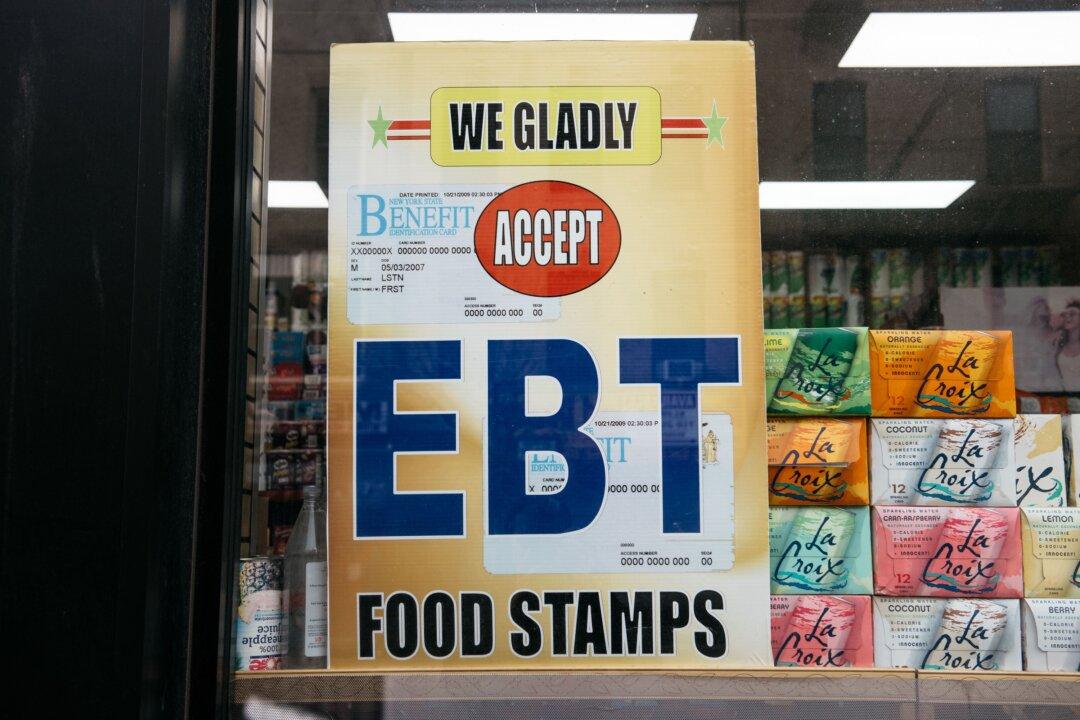The U.S. food stamp program is losing about $1 billion a month because of alleged fraud and errors, Sen. Joni Ernst (R-Iowa) has said.
The lawmaker made the claim in a Sept. 26 statement that announced new legislation aimed at combating the alleged billions of dollars in monthly losses from the U.S. Department of Agriculture’s (USDA) Supplemental Nutrition Assistance Program (SNAP), which allows low-income families with benefit cards to buy basic food items at approved grocery stores.




